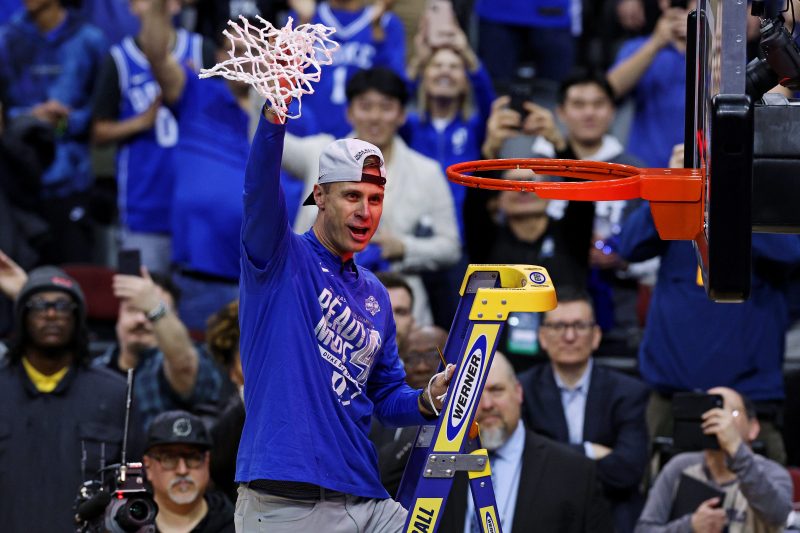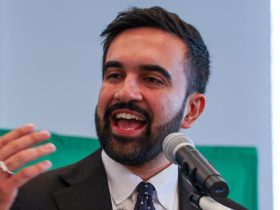SAN ANTONIO – Years after he walked away from the job that seemed like any basketball coach’s dream, Gene Bartow would joke about it. It wasn’t so much that he was worried UCLA would fire him, he said.
“But assassinated? That’s a different thing.”
Bartow, who died in 2012, was 44 years old when he got an offer he couldn’t refuse: Replace John Wooden, who announced his retirement on March 29, 1975, and won his 10th NCAA championship two days later.
But it didn’t take long before Bartow realized he made a mistake leaving Illinois after one season. The pressure of replacing Wooden and the microscope he was living under in Los Angeles made him miserable and paranoid. The stress ate away at him, literally. And even though UCLA went 52-9 under Bartow, reaching a Final Four and a Sweet 16, he left after two years to become the athletics director and head coach of Alabama-Birmingham’s startup program.
“Deep down, I thought we might be able to win the national championship that third year and I kind of wanted to battle on through it,” Bartow told the Los Angeles Times in 1990. “But I kept thinking, ‘Even if we do, even if we go undefeated and win the national championship, would it really change some of the things that were ingrained?’ ‘
For generations, Bartow’s early departure and the four coaches after him who either failed miserably or couldn’t cope with the demands of the UCLA job, defined one of the most prominent axioms in sports: You never want to be the coach who follows a legend.
So when Duke announced on June 4, 2021, that 33-year-old Jon Scheyer would replace Mike Krzyzewski the following April, it would have been reasonable based on history to predict the worst. To wonder if Scheyer was offered up as a sacrificial lamb in an impossible situation. To be skeptical that a first-time head coach less than a decade removed from his playing career could credibly lead a program that had been under Krzyzewski’s rule for 42 years.
And yet on Saturday night here at the Alamodome, just three years into his tenure, Scheyer will lead Duke out of the tunnel and onto the court for a Final Four game against Houston with a powerhouse program that has quickly been remade in his image, and a potential championship team that he constructed without any real connection to the Krzyzewski era.
It has arguably been the smoothest, most-successful, drama-free transition from legend to replacement in the history of sports.
“I’ll tell you how good Jon Scheyer has been,” Houston coach Kelvin Sampson said. “Nobody talks about him replacing Coach K anymore. He’s Jon Scheyer. He’s got his team in the Final Four. I think that speaks volumes.”
Anyone who thinks it was always going to play out this way, or that Duke’s program was going to stay on autopilot in a post-Krzyzewski world because of its brand or the significant money the school and its boosters committed to the roster simply doesn’t understand how difficult these transitions typically are in college sports.
PREDICTIONS: Our experts forecast who wins Final Four semifinals
TOP SEEDS: Where does this Final Four rank with the best ever?
Whether it was Lute Olson’s messy handoff to Kevin O’Neill at Arizona, the complete meltdown at UConn after Kevin Ollie won a shocking national title in his second year replacing Jim Calhoun or Villanova having to cut the cord with Kyle Neptune just three years into the post-Jay Wright era, failure is normal. What’s happened at Duke is the outlier.
“It’s not easy,” said new UNLV coach Josh Pastner, who was 31 back in 2009 when he was tabbed to replace John Calipari at Memphis. “You feel the pressure, there’s no doubt about it. You can’t not feel it. I couldn’t be Coach Calipari. What he did there, only one guy could do that.
‘So you’ve got to be comfortable in your own skin. You have to do it the way you believe is the right way, and there’s mistakes along the way and I’m sure Jon has felt that. So I understand it, and the job he’s done following Coach K is about as impressive following a legend at that stature as we’ve seen in the recent time of any sport, not just college basketball.”
The credit, of course, goes mostly to Scheyer. He’s been up to the job in recruiting, securing four straight No. 1-ranked classes while using the transfer portal to fill in some holes and boost the experience level of the roster. He’s been perfectly capable in the X and O department. And he’s shown a high level of emotional IQ, projecting a presence that is both commanding and approachable while avoiding the trap of cosplaying as a Krzyzewski clone.
But a lot of credit goes to Krzyzewski, too, because of how thoughtfully and delicately he’s handled his part in the transition.
It’s possible Krzyzewski will be somewhere in the stands watching Saturday, though it’s not a guarantee. Since coaching his last game at the Final Four in 2022, he has maintained an office at Duke as an ambassador for the program of sorts but has chosen to be circumspect about his appearances at Duke games or other places where he might draw attention away from Scheyer. Though Krzyzewski hosts a weekly radio show, it seems that his general posture has been to help when needed behind the scenes but to mostly stay out of the way.
“Coach K has given me amazing room to be myself,” said Scheyer, who was the point guard in 2010 for Krzyzewski’s fourth championship team. “I think he understands when he’s around, just the gravity and the people looking at him and all that. But our communication has been the same all the time.
‘I’ll tell you, in the toughest moments that I’ve had as a head coach my first three years, the person I call is him. And for him to talk me through different moments or situations, not many coaches still have their coach. I do, and I couldn’t be more grateful to that.
“Not many coaches truly want the program to succeed once they’re done, and I think part of his legacy forever will be the fact that he set our program up for such success. We’re able to be in the Final Four in Year 3, and it’s a credit to him and how the succession has gone down.”
In retrospect, Krzyzewski clearly understood and internalized the complicated nature of what would follow when he announced his retirement in the summer of 2021 but gave himself one more season to coach.
People who were conditioned to be skeptical of Krzyzewski’s motives might have interpreted that as an ego-boosting retirement tour, standing in stark contrast to North Carolina coach Roy Williams’ surprise announcement two months earlier that he was handing the program off immediately to Hubert Davis.
Four years on, however, North Carolina is a bit of a mess. Though his first team got hot and made the national championship game as a No. 8 seed – delivering Krzyzewski’s final loss along the way – Davis has struggled with the nuts and bolts of running the program in a landscape dominated by NIL and the transfer portal. North Carolina has now hired Jim Tanner as general manager in hopes that Davis’ tenure can be salvaged next year when he’ll clearly be under a mandate to return the Tar Heels to the national stage.
The way Krzyzewski handled his retirement, on the other hand, gave Scheyer 10 months to ease into the job and both mentally prepare himself to be the next head coach while also setting up the infrastructure of the program and the recruiting apparatus to hit the ground running while not having to worry about the full responsibility of coaching the team.
By the time Scheyer fully took over, he had already signed blue-chip recruits like Dariq Whitehead, Dereck Lively, Kyle Filipowski and Tyrese Proctor, who knew they were coming to Duke to play for Scheyer, not Krzyzewski.
It turned out to be an invaluable period, given the scope of the transition.
“I think that year was definitely mischaracterized,” Scheyer said. “Coach K’s biggest intention was that he wanted the program to be able to sustain great success. And in order to do that, especially in that time, you had to have a chance to recruit a team.
“Another thing that was just as important, it made it more real for me. Some of the best conversations I’ve ever had with coach was throughout that season, just talking about why he makes certain decisions, what’s going on in his mind in real time during a game.
‘So you’re thinking about, all right, he called a timeout. Would I call the timeout at the same time? Being here at the Final Four (in 2022), going through the tournament, it just made it more real. It was a great trial run for me to imagine what plays you would call in certain situations.”
It has not, of course, been a straight line to the top for Duke in the post-Krzyzewski era. Some of the recruits in Scheyer’s first couple of classes fell short of their massive expectations. Losing to North Carolina State in the Elite Eight last year as a huge favorite was a gut punch. And in the long run, it’s unlikely Scheyer comes close to matching the Krzyzewski standard because that’s just not a realistic comparison when you’re talking about 1,129 wins, 13 Final Fours and five titles.
But in just his third year as a head coach, Scheyer has proven that he can handle the pressure of running a blueblood program, that he can relate to elite talent without being a pushover and that he can construct rosters at maybe an even higher level than Krzyzewski did in his last several years, when the pieces didn’t always seem to quite fit.
Nobody can see the future, but all the signs suggest Scheyer is here to stay, and Duke is going to avoid the years of drama and tumult that often follow when a legend steps away. Scheyer doesn’t need a national title Monday to validate the Duke succession plan, but it would be an exclamation point on how unusually seamless he and Krzyzewski have navigated a path that swallowed up so many who traversed it before.









